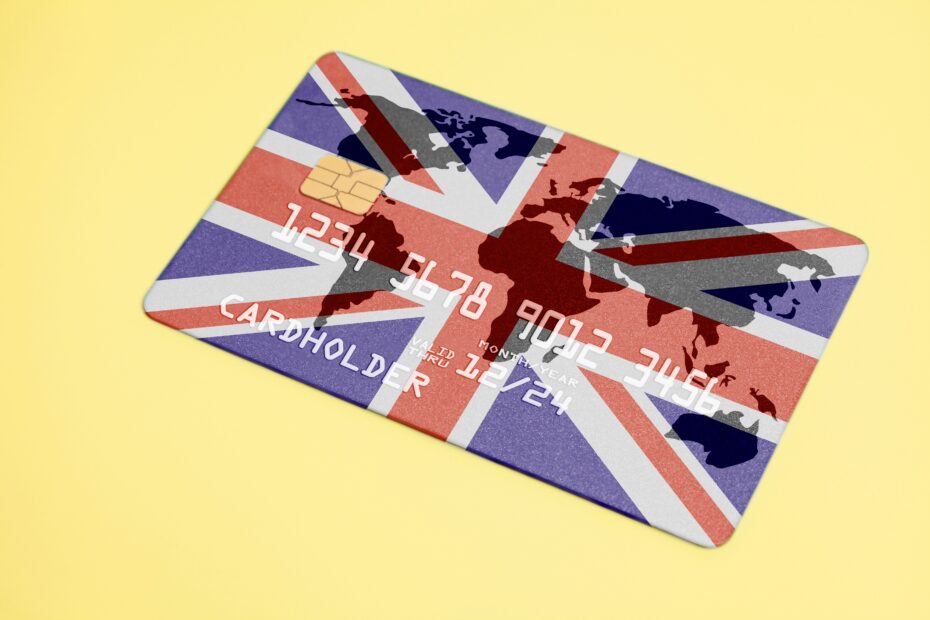The United Kingdom (UK) houses several strong industries including its e-commerce market, which is the 4th largest market in the world with a revenue of over $110 billion. The UK’s e-commerce market is supported by countless users and is expected to only grow further and increase even more in size over the next decade.
Accepting credit cards and other digital payments is critical to a business’s success in the United Kingdom. At the same time, businesses should remember other local payments including debit card payments, bank transfers, and e-wallet transactions when offering online goods or services. Data reveals that online sellers that accept a wide range of payment options often experience an increase in their online transactions and subsequently experience growth.

Why United Kingdom Businesses Should Accept Worldwide Payments
15% of shoppers in the UK purchase goods from international websites each day. Only 44% of UK online businesses, however, offer worldwide delivery options. To realize the greatest growth possible, your business should give deep thought to selling goods or services to consumers internationally as well as accepting a wider range of payment methods.
Because more people have grown comfortable with purchasing goods or services on their electronic devices and have deviated from traditional cash payments, accepting digital payments is a new standard payment option offered by businesses. Consumers are also becoming more familiar with internet banking, which is why it’s vital for businesses that want to reach their full growth potential to partner with a payment processor.
Businesses should look at payment provider services with not just low costs but also that can help your operation accept the biggest number of alternative payment options.

The Main Types of Payment Gateway United Kingdom
Many payment gateways can be grouped into either onsite or offsite variations. The difference between the two gateways includes:
- Onsite gateways. Onsite gateways are a type of payment gateway that lets businesses receive transactions directly from the business’s website. As a result, customers are never passed to a third-party site while performing a payment transaction. Businesses can decide whether an onsite payment gateway should be visible or not, which means that customers will be greeted with the gateway provider’s logo and other branding or not see this at all. Middle to small-sized businesses in the UK often have onsite payment gateways where the provider’s branding is visible. Displaying a provider’s branding is often less costly and easier to set up than non-branded gateways. Consider the following upsides (and downsides) to utilizing an onsite gateway at your business:
- Advantages. The checkout process with onsite payment gateways occurs seamlessly through the business’s website. Many times, this process is much less nuanced than the process involved with offsite gateways. Customers need not visit external websites before transactions are completed, which means customers are less confused and can purchase items or services faster.
- Disadvantages. Onsite payment gateways require businesses to pass through various audits as well as security monitoring to confirm that the business’s website satisfies the onsite gateway requirements. This can present businesses with additional complications to navigate.
- Offsite gateways. Offsite gateways involve those gateways where customers are transported online to a third party’s payment gateway website during checkout. The payment gateway provider is responsible for handling all aspects of the transaction from the moment the purchaser enters payment details to the receipt of funds without any of this data being processed on the seller’s website. Some issues that businesses weigh when considering whether an offsite gateway is a good idea include:
- Advantages. Businesses often discover that offsite payment gateways offer lower costs than other options. Sometimes, offsite payment gateways are even free. Another advantage of using offsite payment gateways is that they are easier and quicker to set up than onsite payment gateways.
- Disadvantages. Offsite payment gateways have some disadvantages too. Redirecting customers to a third party’s payment gateway during checkout can lead to uncertainty and even loss of trust in a brand. Some types of services like subscriptions can also prove more challenging with offsite gateways.

Top Payment Gateways in the United Kingdom
Receiving virtual payments is a vital part of the operation for any successful business owner in the UK. We believe that the quality of our services stands out from the competition, which includes the following providers that offer payment provider services in the United Kingdom:
- Takepayments. A strong contender in the payment gateway industry, Takepayments offers 16 integrations and accepts more than 170 types of currency. Some reasons why businesses in the UK select Takepayments for payment gateway services include a great assortment of features and low monthly costs. This is only offset by Takepayments’ lack of email support. Takepayments charges transaction fees ranging from .30% to 2.29% for card transactions and 10p for each online transaction.
- Zettle. PayPal utilizes a payment gateway called Zettle for both in-person and online transactions. Zettle offers a wide range of features as well as outstanding customer service. For businesses interested in mobile transactions, Zettle should be one of the top choices. The company handles 25 currencies, provides quick fund transfers, and has fees competitive for the industry. One reason to think twice about Zettle includes is its slightly costly hardware.
- Revolut. A payment gateway primarily focused on online businesses that offers low transaction costs, Revolut is the preferred payment gateway for many UK businesses.The company offers an outstanding invoicing tool and efficient integration for e-commerce businesses. Revolut offers strong customer service too. Revolut, however, lacks adequate reporting. The provider also does not offer fraud prevention features, which means that businesses must secure anti-fraud services elsewhere or risk subjecting their customers to fraud.
- Wordplay. Providing customers with strong features, over 100 integrations, and great customer relationships, Wordplay is another commonly considered payment service provider by UK businesses. The company charges transaction fees ranging between .75% to 2.75%, while Wordplay charges an additional £ 17.50 a month for terminal services and £9.99 for virtual services. If you’re a small business looking to expand, Wordplay is an option that is worth considering among your top contenders.
- Square. Secure offers various features, transfers funds the next day, and comes with countless integrations. Some features that make businesses think twice about Square include the fairly high cost of transaction fees which are 1.75% for card transactions, 2.5% for payment invoices/links, and £16 a month for card reader services. These rates are noticeably higher than those offered by competing services.
- SumUp. SumUp is viewed by many as a leader in 3G payment gateway services. The company offers a card reader equipped with a built-in 3G sim, while many mobile readers require connections to either mobile data or WI-FI through an electronic device. As a result, SumUp is a great choice for traders who sell at several or many locations. One downside to SumUp is that the provider does not offer a live chat feature. The rates charged by SumUp are 1.69% for cards, 2.5% for invoices/links/online stores, £39 a month for SumUp Air, £79 a month for SumUp Solo, and £129 a month for SumUp 3G which comes with a printer.
- Stripe. Offering the highest reporting capabilities, businesses like Stripe because Stripe lets businesses report on fees, refunds, and charges in real-time. For businesses that require detailed reporting, Stripe is worth considering. Stripe also offers strong customer support but is only offset by the fact that the provider’s card readers are often expensive. Stripe offers 1.4% transaction fees and 20p for card transactions, while the company charges .4% for invoicing. The company’s hardware ranges from £49 to £179.

The Difference Between United Kingdom Payment Processors and Gateways
While some payment provider services operate as both processors and gateways, there’s a significant difference between the two.
Payment gateways are often used by e-commerce businesses and in situations where a credit or debit card is not present. Payment processors utilize payment cards to authorize, secure, and process transactions. Some people view payment gateways as the digital version of point-of-sale (POS) terminals, while payment processors are the digital equivalent of a card processing machine.
Gateways and processors work together to ensure that the checkout and payment processes are as easy and safe as possible.

How Payment Gateways Function
Payment gateways require several steps and are viewed by some new to the process as complex. Once businesses appreciate that the same general pattern occurs for each payment, this process becomes easier to understand.
The steps involved with payment gateways include:
- Order placed. Customers place an order for a product through a website, which routinely involves adding an item to an online shopping cart, checking out, and completing the necessary payment details. This step varies slightly between businesses.
- Data encryption.Once a customer’s details are received, a payment gateway in the United Kingdom transfers card and order details to the payment processor. This data is encrypted before being sent to the payment processor to prevent a third party from accessing these details.
- Redirection and verification. The customer is redirected to the business’s payment processor website to finalize the transaction. The customer then verifies the payment details to avoid any errors.
- Decision Issues. The payment processor communicates with the customer’s bank by either authorizing or declining the translation based on whether the necessary funds exist in the customer’s account. Afterward, the payment processor communicates the results of the transaction with the payment gateway, which then verifies if the payment was approved or not approved.
- Customer notified. The customer then receives a readout to distinguish whether a payment was approved or not. If payment was unsuccessful, the customer is given the option to use another payment method.

Contact Us for Assistance WIth Your Payment Gateway in the United Kingdom
Being a business owner in the United Kingdom requires many businesses to provide customers with multiple digital payment methods. Sometimes, customers walk away from online shopping carts if they discover that a payment gateway is too challenging to use.
Your business must pick the best possible payment gateway provider, which should include a decision based on services, costs, and other factors.

